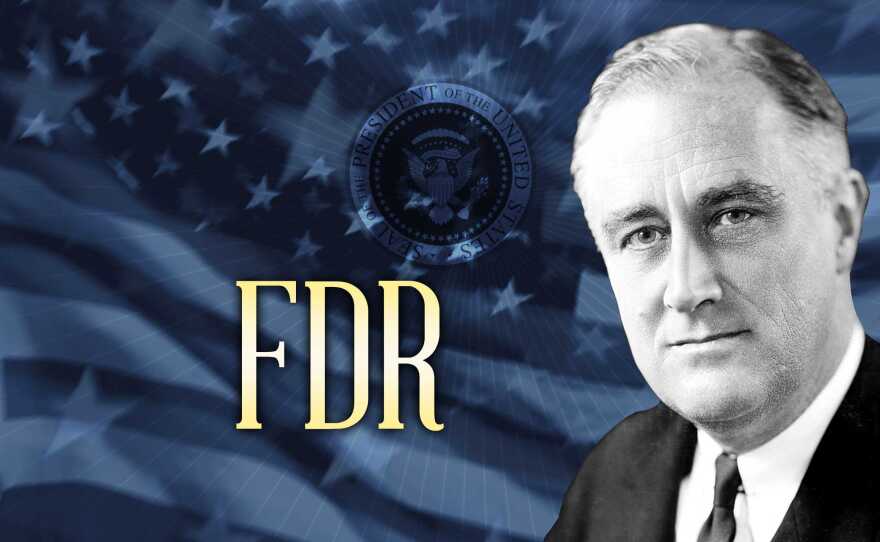Stream now with KPBS+ / Watch Part 1 and 2 on Saturdays, Sept.13 + 20, 2025 at 11 a.m. on KPBS 2 or Tuesday, Sept.16 from 8 - 11:30 p.m. on KPBS TV
The policies and persona of Franklin Delano Roosevelt set the cast of the "modern" presidency. He was unquestionably the most vital figure in the nation, and perhaps the world, during his 13 years in the White House. Engendering both admiration and scorn, FDR exerted unflinching leadership during the most tumultuous period in the nation's history since the Civil War.
The longest-serving president in U.S. history, and leader through the Great Depression and World War II — two of the nation's worst crises — FDR is considered by many to be our greatest president.
In his early years, as a pampered, sheltered scion of a wealthy family, FDR exhibited no outward signs of greatness. With his cousin Theodore as a role model, however, FDR purposely forged a successful political career for himself, until his devastating paralysis from polio seemed to crush his dreams. With the support of his wife, Eleanor, FDR not only recovered, but remade himself into a strong, optimistic national leader.
An aristocrat beloved by "ordinary" citizens and despised by many of his own class as a traitor, FDR, for better or worse, forever changed the American people's relationship with their government. The governmental "safety net" he created would be his greatest legacy — and the source of ongoing controversy today.
EXPLORE MORE:
WATCH:
Clip: Creating a Reason to Go to War
Clip: FDR on the Enemy: Imperial Japan
Clip: FDR on the Enemy: Fear Itself
Clip: FDR and Abusing Power: Reshaping the Supreme Court
Clip: FDR on Policing the World: Hitler's Threat
Clip: FDR and Age: A Careful Choice for Vice President
Clip: FDR on Crisis: Depression Relief
Clip: FDR on Lying: Hiding a Disability
Clip: FDR and Lying: Lend-Lease
READ
Article: Greetings to the Civilian Conservation Corps -The president hails the workers of the Civilian Conservation Corps.
Article: Letter from Joseph C. Grew to Cordell Hul - A letter to Roosevelt's secretary of state describes the Japanese military.
Article: An Emergency is On! - An African American journal, Opportunity, calls for equal wages for black workers.
New Deal a Square Deal for the Negro? - An African American journal, Opportunity, examines New Deal policies and calls for fair treatment for blacks.
The Neutrality Act of 1937 - The law defining rules for exports, financial transactions, and other interactions under the banner of wartime neutrality.
The Atlantic Charter - FDR and Churchill spell out the Anglo-American pact of 1941.
Mobilization for Human Needs, 1933 - FDR asks for community cooperation to help the needy.
Message to Congress on Social Security - A recommendation for legislation to help protect Americans from the hazards of life.
Watch On Your Schedule: KPBS+ is a new free streaming video app designed for ease and enjoyment everywhere you watch including Roku, smart TVs and mobile devices. It’s locally curated for San Diego by the KPBS programming team. With a clean and intuitive design, discovering and enjoying KPBS and PBS content on-demand has never been easier.
You can also tune in live to watch our four TV channels in real time: KPBS, KPBS 2, Create, KPBS Kids 24/7. We also added a new channel - FNX (First Nation Experience).
Your KPBS Passport member benefit works on KPBS+ too! You’ll have access to even more great shows when you simply log in with your KPBS Passport account.





